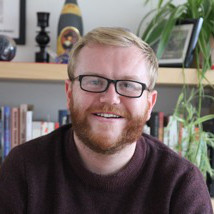‘The landscape is very dramatic’ | Interview with David Toms

David Toms lives and works in Norway. His new poetry collection is Northly from Turas Press.
Which poets/writers most influenced you in your new collection, Northly?
You live in Norway but were born in Ireland, Has that change of geography and culture influenced your work, if so in what way?
Your new collection Northly is published by the recently launched press Turas Press based in Ireland, how important are small press in the eco-system of poetry in Ireland and the UK?
You have a PhD in history, how influential is that background and knowledge in history an influence on your poetry?
Which poets are you reading at the moment?
What next in your writing? Are you working on a new project?
